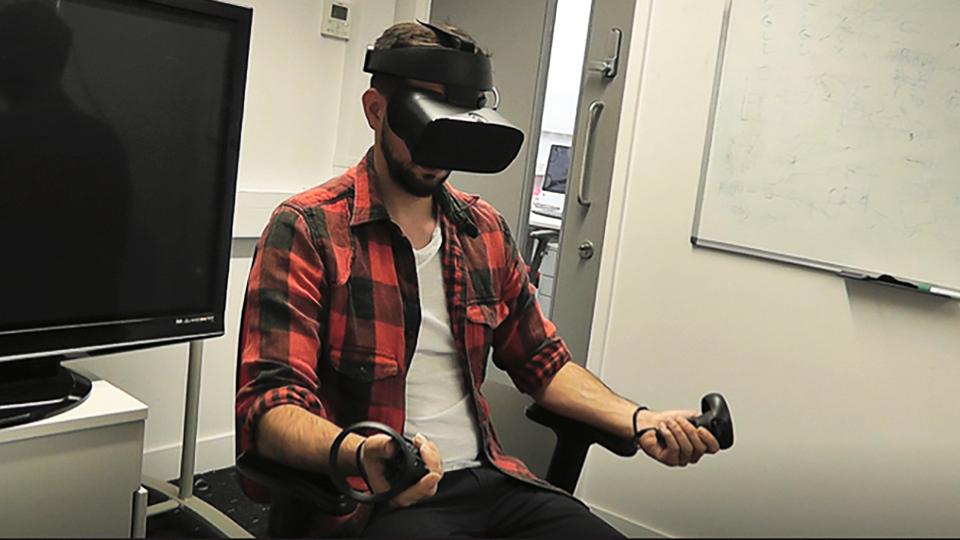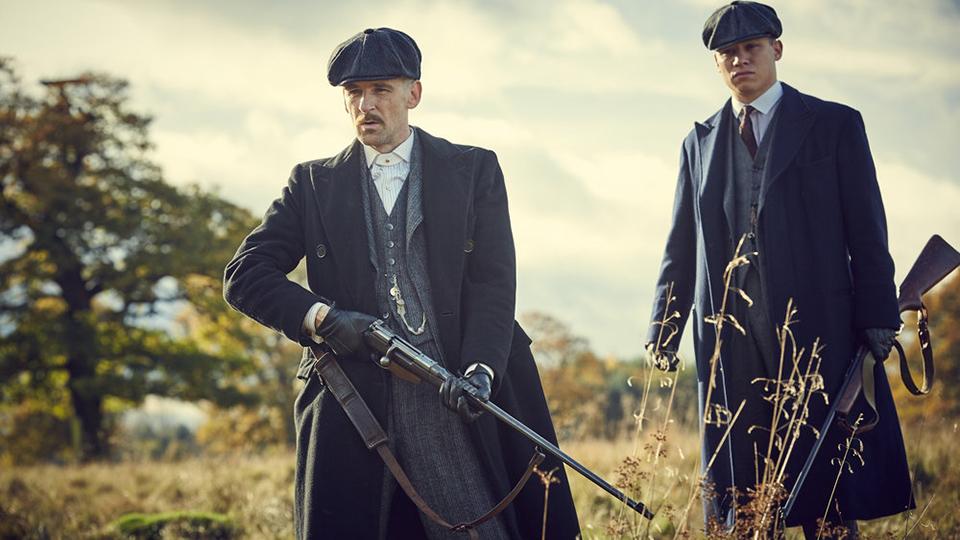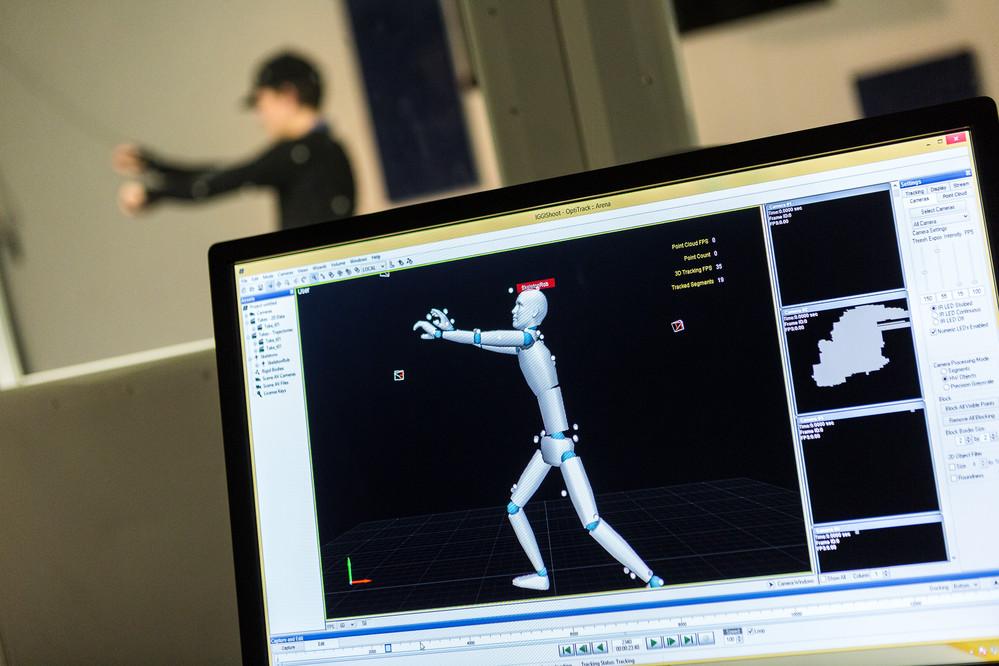Jamalian, Nima; Gillies, Marco; Leymarie, Frederic Fol and Pan, Xueni. 2022. 'The Effects of Hand Tracking on User Performance: an experimental study of an object selection based memory game'. In: 2022 IEEE International Symposium on Mixed and Augmented Reality (ISMAR). Singapore, Singapore 17-21 October 2022.
Dobre, Georgiana Cristina; Gillies, Marco; Ranyard, David C; Harding, Russell and Pan, Xueni. 2022. 'More than buttons on controllers: engaging social interactions in narrative VR games through social attitudes detection'. In: ACM International Conference on Intelligent Virtual Agents (IVA ’22). Faro, Portugal 6 - 9 September 2022.
Cole, Tom and Gillies, Marco. 2022. 'Emotional Exploration and the Eudaimonic Gameplay Experience: A Grounded Theory'. In: CHI '22: ACM CHI Conference on Human Factors in Computing Systems. New Orleans, LA, United States 30 April - 5 May 2022.
Cole, Tom and Gillies, Marco. 2022. 'More than a bit of coding: (un-)Grounded (non-)Theory in HCI'. In: CHI Conference on Human Factors in Computing Systems Extended Abstracts (CHI ’22 Extended Abstracts). New Orleans, LA, United States 30 April - 5 May 2022.
Dobre, Georgiana Cristina; Wilczkowiak, Marta; Gillies, Marco; Pan, Xueni and Rintel, Sean. 2022. 'Nice is Different than Good: Longitudinal Communicative Effects of Realistic and Cartoon Avatars in Real Mixed Reality Work Meetings'. In: CHI Conference on Human Factors in Computing Systems Extended Abstracts. New Orleans, LA, United States 29 April - 5 May 2022.
Hilton, Clarice; Plant, Nicola; Fiebrink, Rebecca; Perry, Phoenix; González Díaz, Carlos; Gibson, Ruth; Martelli, Bruno; Zbyszynski, Michael and Gillies, Marco. 2021. 'InteractML: Making machine learning accessible for creative practitioners working with movement interaction in immersive media'. In: VRST ’21: ACM Symposium on Virtual Reality Software and Technology. Osaka, Japan 8-10 December 2021.
Dobre, Georgiana Cristina; Gillies, Marco; Falk, Patrick; Ward, Jamie A; Hamilton, Antonia F de C and Pan, Xueni. 2021. 'Direct Gaze Triggers Higher Frequency of Gaze Change: An Automatic Analysis of Dyads in Unstructured Conversation'. In: International Conference on Multimodal Interaction (ICMI ’21). Montréal, QC, Canada 18 - 22 October 2021.
Gillies, Marco. 2021. 'Learnable Computing'. In: ACM CHI '21: CHI Conference on Human Factors in Computing Systems Extended Abstracts. Yokohama, Japan 8 – 13 May 2021.
Plant, Nicola; Hilton, Clarice; Gillies, Marco; Fiebrink, Rebecca; Perry, Phoenix; González Díaz, Carlos; Gibson, Ruth; Martelli, Bruno and Zbyszynski, Michael. 2021. 'Interactive Machine Learning for Embodied Interaction Design: A Tool and Methodology'. In: Fifteenth International Conference on Tangible, Embedded, and Embodied Interaction (TEI ’21). Salzburg, Austria 14–17 February 2021.
Plant, Nicola; Gibson, Ruth; Diaz, Carlos Gonzalez; Martelli, Bruno; Zbyszynski, Michael; Fiebrink, Rebecca; Gillies, Marco; Hilton, Clarice and Perry, Phoenix. 2020. 'Movement Interaction Design for Immersive Media Using Interactive Machine Learning'. In: Proceedings of the 7th International Conference on Movement and Computing. Jersey City, NJ, United States 15 – 17 July 2020.
Gillies, Donald A and Gillies, Marco. 2020. 'Artificial Intelligence and Philosophy of Science from the 1990s to 2020'. In: Conference on the Philosophy of Science today: Seven perspectives (XXV Conference on Contemporary Philosophy and Methodology of Science). Ferrol, Spain 12-13th March 2020.
Gillies, Marco and Pan, Xueni. 2018. 'Virtual reality for social skills training'. In: VR/AR in Higher Education Conference 2018. Swansea, United Kingdom 12 September 2018.
Gillies, Marco. 2018. 'Creating Virtual Characters'. In: MOCO 2018 the 5th International Conference of Movement and Computing. Genova, Italy 28-30 June.
Gillies, Marco. 2016. 'What is Movement Interaction in Virtual Reality for?'. In: 3rd International Symposium On Movement & Computing. Thessaloniki, Greece.
Gillies, Marco. 2016. 'What is Movement Interaction in Virtual Reality for?'. In: MOCO 2016: 3rd International Symposium On Movement & Computing. Thessaloniki, Greece.
Gillies, Marco; Fiebrink, Rebecca; Tanaka, Atau; Garcia, Jérémie; Amershi, Saleema; Lee, Bongshin; Bevilacqua, Frédéric; Heloir, Alexis; Nunnari, Fabrizio; Mackay, Wendy; Kulesza, Todd; Caramiaux, Baptiste; d’Alessandro, Nicolas and Tilmanne, Joëlle. 2016. 'Human-Centered Machine Learning'. In: CHI '16 Extended Abstracts on Human Factors in Computing Systems. San Jose, United States 7 - 12 May 2016.
Donald, Nicky and Gillies, Marco. 2015. 'Novel Dramatic and Ludic Tensions Arising from Mixed Reality Performance as Exemplified in Better Than Life'. In: International Conference on Interactive Digital Storytelling. Copenhagen, Denmark.
Cole, Tom; Cairns, Paul and Gillies, Marco. 2015. 'Emotional and Functional Challenge in Core and Avant-garde Games'. In: CHI Play 2015. London, United Kingdom.
Gillies, Marco; Brenton, Harry; Yee-King, Matthew; Grimalt-Reynes, Andreu and d'Inverno, Mark. 2015. 'Sketches vs Skeletons: Video Annotation Can Capture What Motion Capture Cannot'. In: Proceedings of the 2Nd International Workshop on Movement and Computing. Vancouver, Canada.
Gillies, Marco; Brenton, Harry and Kleinsmith, Andrea. 2015. 'Embodied Design of Full Bodied Interaction with virtual humans'. In: 2nd International Conference on Movement and Computing. Vancouver, Canada.
Gillies, Marco; Kleinsmith, Andrea and Brenton, Harry. 2015. 'Applying the CASSM Framework to Improving End User Debugging of Interactive Machine Learning'. In: ACM Intelligent User Interfaces (IUI). Atlanta, United States.
Brenton, Harry; Yee-King, Matthew; Grimalt-Reynes, Andreu; Gillies, Marco; Krivenski, Maria and d'Inverno, Mark. 2014. 'A Social Timeline for Exchanging Feedback about Musical Performances'. In: Proceedings of the 28th International BCS Human Computer Interaction. Southport, United Kingdom.
Brenton, Harry; Kleinsmith, Andrea and Gillies, Marco. 2014. 'Embodied Design of Dance Visualisations'. In: International Workshop on Movement and Computing. paris, France.
Mohd Mokhtar, Ezwan and Gillies, Marco. 2013. 'How I Animate: A Hand Gesture-Centric Technique'. In: EVA London 2013: Electronic Visualisation and the Arts. London, United Kingdom.
Gillies, Marco; Zapata Gomez, Shakti and Zimmer, Sebastian. 2013. 'Suzie’s Dance: reliving dance through motion capture animation of photographs'. In: Electronic Visualisation and the Arts. London, United Kingdom.
Gillies, Marco; Worgan, Max; Peppe, Hestia; Robinson, Will and Kov, Nina. 2011. 'Exploring Choreographers’ Conceptions of Motion Capture for Full Body Interaction'. In: The BCS Conference on Human Computer Interaction. Newcastle, United Kingdom.
Gillies, Marco. 2010. 'Bodily Non-verbal Interaction with Virtual Characters'. In: Kansei Engineering and Emotion Research. Paris, France.
Gillies, Marco; Zhang, Li and Barnden, J A. 2008. 'EMMA: an Automated Intelligent Actor in E-drama'. In: Proceedings of International Conference on Intelligent User Interfaces. Canary Islands, Spain 13th - 16th Jan 2008.
Pan, Xueni; Gillies, Marco and Slater, Mel. 2008. 'Male Bodily Responses during an Interaction with a Virtual Woman'. In: Intelligent Virtual Agents. Tokyo, Japan 2008.
Zhang, Li; Gillies, Marco; Barnden, J A and Hendley, R J. 2007. 'An Improvisational AI Agent and Emotionally Expressive Characters'. In: Workshop on Narrative Learning Environments, Supplementary Proceedings of the 13th International Conference of Artificial Intelligence in Education. Los Angeles, United States July 9-13, 2007.
Zhang, Li; Gillies, Marco; Roberson, D.; Oldroyd, Amanda and Barnden, J A. 2007. 'Emotionally Expressive Characters in E-drama'. In: In Proceedings of International Conference of Internet Technology and Secured Transactions. London, United Kingdom.
Dhaliwal, Kulwant; Gillies, Marco; O’Connor, John; Oldroyd, Amanda; Robertson, Dale and Zhang, Li. 2007. 'eDrama: Facilitating online role-play using emotionally expressive avatars.'. In: The AISB Workshop on Language, Speech and Gesture for Expressive Characters. UNDEFINED 2007.
Pan, Xueni; Gillies, Marco; Sezgin, T M and Loscos, C. 2007. 'Expressing Complex Mental States Through Facial Expressions'. In: Second International Conference on Affective Computing and Intelligent Interaction. Lisbon, Portugal.
Gillies, Marco. 2006. 'Applying direct manipulation interfaces to customizing player character behaviour.'. In: International Conference on Entertainment Computing. UNDEFINED 2006.
Vinayagamoorthy, Vinoba; Gillies, Marco; Steed, A.; Tanguy, E.; Pan, Xueni; Loscos, C. and Slater, M.. 2006. 'Building Expression into Virtual Characters'. In: Eurographics Conference State of the Art Reports. Vienna, Austria 4-8 September, 2006.
Gillies, Marco; Crabtree, I. Barry and Ballin, Daniel. 2006. 'Individuality and Contextual Variation of Character Behaviour for Interactive Narrative.'. In: AISB Workshop on Narrative AI and Games. UNDEFINED 2006.
Friedman, Doron and Gillies, Marco. 2005. 'Teaching Characters How to Use Body Language'. In: Intelligent Virtual Agents. Kos, Greece 12-14 September, 2005.
Gillies, Marco and Ballin, Daniel. 2004. 'Affective Interactions Between Expressive Characters'. In: Proceedings of the IEEE conference on Systems, Man and Cybernetics. The Hague, Netherlands.
Gillies, Marco and Ballin, Daniel. 2004. 'Integrating autonomous behavior and user control for believable agents'. In: Third international joint conference on Autonomous Agents and Multi-Agent Systems. Columbia University, New York 2004.
Gillies, Marco; Crabtree, Barry and Ballin, Daniel. 2004. 'Expressive characters and a text chat interface'. In: AISB workshop on Language, Speech and Gesture for Expressive Characters. University of Leeds, UK March, 2004.
Ballin, Daniel; Gillies, Marco and Crabtree, Barry. 2004. 'A Framework For Interpersonal Attitude And Non-Verbal Communication In Improvisational Visual Media Production'. In: 1st European Conference on Visual Media Production (CVMP). IEE, London, UK 15-16 March 2004.
Gillies, Marco; Ballin, Daniel and Csáji, Balázs Csanád. 2004. 'Efficient Clothing Fitting from Data.'. In: 12th International Conference in Central Europe on Computer Graphics, Visualization and Computer Vision (WSCG). Plzen, Czech Republic 2-6 February 2004.
Gillies, Marco and Ballin, Daniel. 2003. 'A Model of Interpersonal Attitude and Posture Generation'. In: Workshop on Intelligent Virtual Agents. UNDEFINED.
Gillies, Marco; Ballin, Daniel and Dodgson, Neil. 2002. 'Integrating Internal Behavioural Models with External Expression'. In: PRICAI '02 International workshop on Lifelike Animated Agents: Tools, Affective Functions and Applications. Tokyo, Japan 2002.
Gillies, Marco; Dodgson, Neil and Ballin, Daniel. 2002. 'Autonomous Secondary Gaze Behaviours'. In: AISB workshop on Animating Expressive Characters for Social Interactions. Imperial College, London 2002.
Gillies, Marco and Dodgson, Neil. 1999. 'Invariants and Affordances for Walking in a Cluttered Environment'. In: Second Workshop on Intelligent Virtual Agents. University of Salford 1999.
Gillies, Marco and Dodgson, Neil. 1999. 'Ball Catching: an example of psychologically-based behavioural animation'. In: Eurographics UK 17th annual conference. UK 1999.
Gillies, Marco and Dodgson, Neil. 1999. 'Psychologically-based Walking in a Cluttered Environment'. In: Eurographics `99 Short Papers and Demos. Milan, Italy 1999.



